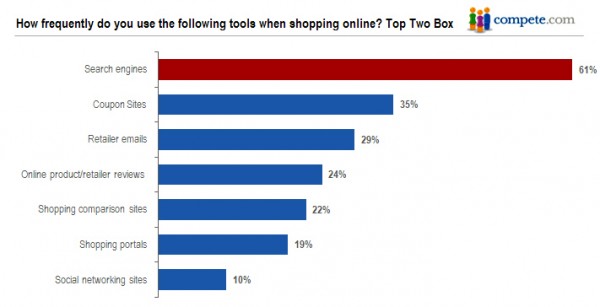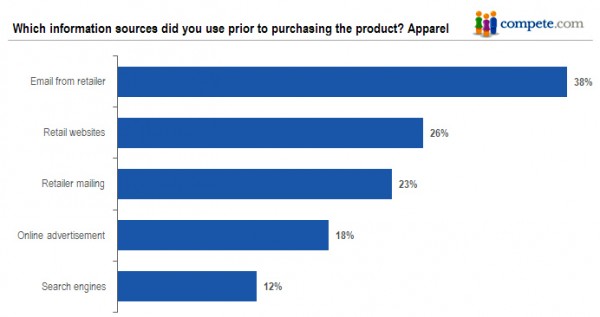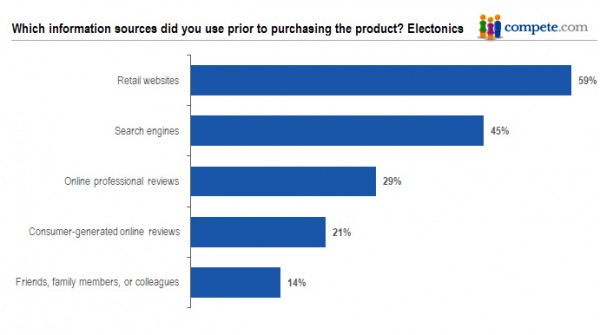Using online search statistics
I had the chance to attend a “Grow Your Business Online” presentation, a Google-Ink from Chase event at Google headquarters earlier this month. Google shared some interesting statistics about online searches and how to optimize your marketing to capture your customers wherever they are online.
Consumers research online before shopping
60% overall
In the Online Shopper Intelligence Study, compete.com found that 60% of consumers research their purchases online first.
Behavior varies …
Also interesting to note, however, is that there is variability in search behavior across different industries. For example, only 12% of apparel shoppers use search, relying more on emails, websites, mailing, and ads from retailers.
One of the most interesting statistics in an ongoing consumer tracking study conducted by BIA/Kelsey is that 97% of consumers use online media to search for local businesses and products. Among those surveyed, 90% use search engines, 48% use internet yellow pages and directories, 24% use vertical sites, and 42% use comparison shopping sites.
In-store shoppers use search before and during shopping
Consumers also search online before doing in-store shopping. According to a survey of consumer retail spending and trends from Deloitte, 75% of consumers look online for store, price, or product information before or during in-store shopping. More than half use social networking sites to research and interact with retailers, find out about promotions, and read reviews, with half of consumers saying that an online product review has influenced their decision on whether to buy a product.
Users search for local stores and products
According to Google, 20% of Google searches are related to local and 30% of mobile searches are local. Google Place pages appear before organic search results on results pages and visitors use this information to find out more about your company, map your location, and learn about your products or services. Listings in online directories and online yellow pages can also help your business appear in higher rankings.
How do you take advantage of these stats?
- Optimize your website for search
- Make sure your free Google Places page is correct and complete
- List your business in local online directories
- Optimize your site for mobile devices or have a mobile website
- Keep information on your Facebook page up to date
- Know your audience so you can focus on the online resources your customers use most
- Create valuable content about your products and services, include reviews, and make sure it’s easy for shoppers to buy online or easily locate your store
The Google “Grow Your Business Online” events are being held in locations around the world and are a great source of the latest information about online search. I highly recommend attending if one comes to a city near you!


